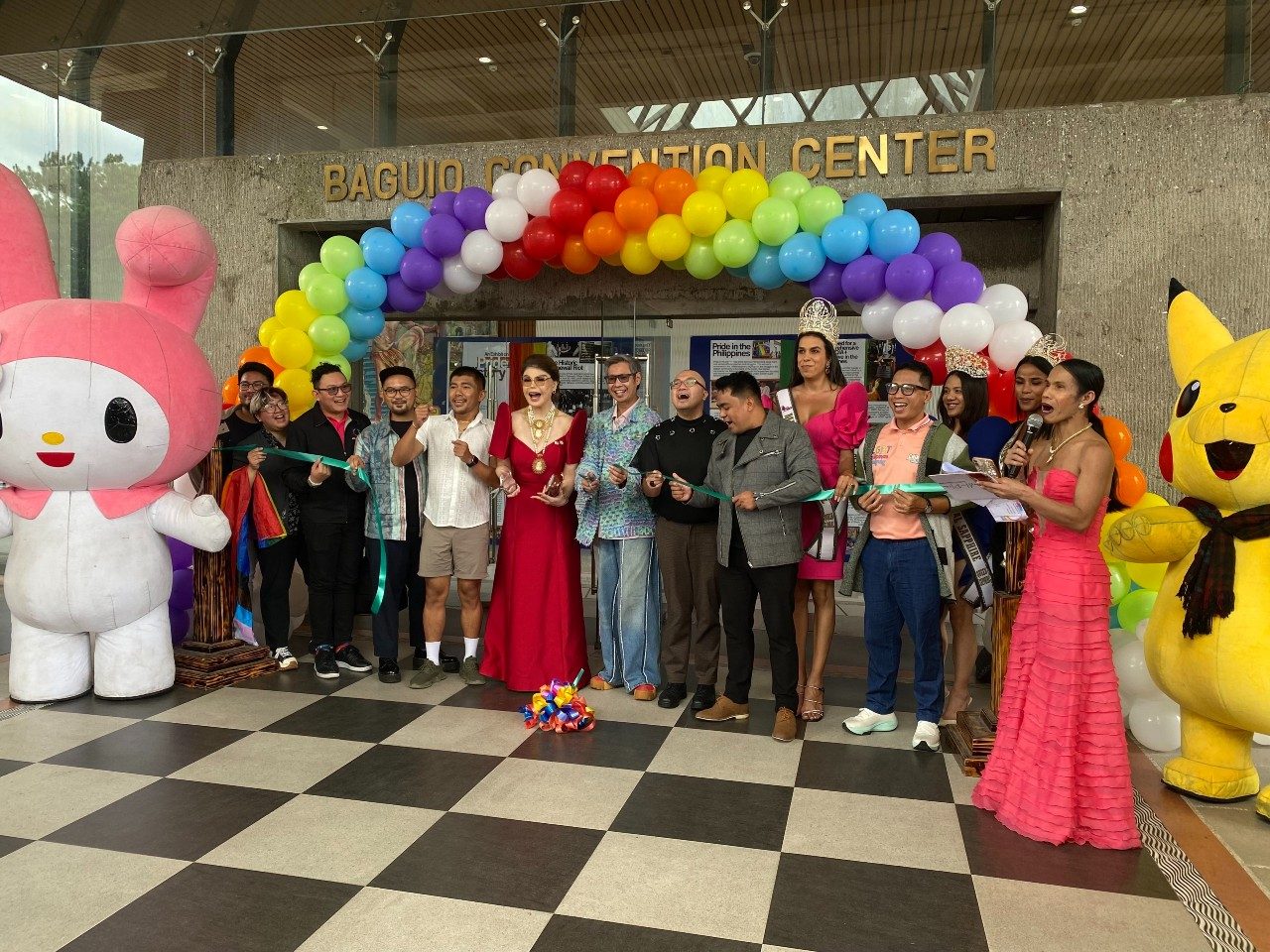Physical Address
304 North Cardinal St.
Dorchester Center, MA 02124
Physical Address
304 North Cardinal St.
Dorchester Center, MA 02124

Mayor Benjamin Magalong hopes the Baguio Equality Expo is ‘a memorable opportunity where one can feel embraced, valued, and included’
BAGUIO CITY, Philippines – Filipino members of the LGBTQIA+ community have long fought for their place in society. As their fight for equality continues, one city has taken a step forward to assure the community that they are more than welcome.
Baguio City, long known as an “inclusive human rights city,” collaborated with LGBTQIA+ organizations to hold the city’s first-ever Pride convention.
The two-day “Baguio Equality Expo 2025” was held at the Baguio Convention and Cultural Center on June 14 and 15. It featured an exhibit on the history of the Pride Movement, booths, and several activities such as a queer film viewing, a lip-synch challenge, and speed dating.
The City Tourism, Culture, and Arts Division collaborated with LGBTQIA+ groups in Baguio to make the event possible. Aloysius Mapalo, the division’s supervising tourism operations officer, said the event was more than just a celebration; it was also meant to amplify the stories of members of the LGBTQIA+ community.
“By standing together across identities, orientations, and experiences, we are showing the world that our strength lies in our shared purpose. When we raise one another up, we rise together,” Mapalo said.
Although not present at the event, Baguio City Mayor Benjamin Magalong also shared his support for the event in a recorded message.
“Let us make this celebration a memorable opportunity where one can feel embraced, valued, and included. Gather the spirit and value that breeds quality, compassion, and respect for all,” Magalong said.
The Baguio Equality Expo is part of a series of events in June to celebrate Pride Month in Baguio City.
Despite Pride Month typically being seen as a celebration of the love between the members of the LGBTQIA+ community, Bahaghari, a national democratic organization fighting for LGBTQIA+ rights in the country, maintains that Pride is more than a celebration but is also a protest.
Abi Taningco from the University of the Philippines Baguio Chapter of Bahaghari said Pride will remain a protest as long as the community still faces discrimination.
“As long as there is one member of the LGBT community who is struggling, who is not able to come out of the closet, who is not able to eat, who is not able to live to be who they are, Pride will always be a protest,” Taningco said.
Taningco added that the exhibit featuring the history of the Pride movement was installed in the event to remember the roots of the LGBT community.
The start of Pride Month is attributed to a riot against police brutality at Stonewall Inn, a dive bar in New York City, subjected to multiple police raids to arrest transgender and gender nonconforming individuals. However, on June 28, 1969, patrons of the dive bar fought back when the police raided the bar again. This eventually became known as the “Stonewall Riots.”
Meanwhile, members of the LGBTQIA+ community in the Philippines, together with the Metropolitan Community Church, organized Asia’s first-ever Pride Parade in Quezon City on June 26, 1994, the 25th anniversary of the Stonewall Riots.
Youth leader Raven Mensenas shared that the local government’s support of the Pride convention is a welcome initiative.
“The LGU was one with us, and that speaks volumes to us as LGBT community organizers. Because it means we are being heard, at least in our city,” Mensenas said in a mix of English and Filipino.
Mensenas further challenged Magalong’s administration to strengthen policies and ordinances in the city that protect individuals from discrimination.
Baguio City passed the anti-discrimination ordinance on March 1, 2017, which protects individuals from discrimination on the basis of religion, ethnicity, sexual orientation and gender identity, health status, disability, and age. Although it is a highly lauded ordinance, critics have pointed out its lack of implementing rules and regulations.
“There are still a lot of things to be done to prove that Baguio is a safe space for the LGBT community,” Mensenas said.
In the Philippines, there are only a total of 73 anti-discrimination ordinances being enforced in barangays and provinces. Meanwhile, the SOGIE anti-discrimination bill is yet to be passed by the Senate after 25 years. It aims to protect individuals from discrimination based on their sexual orientation, gender identity, and gender expression, nationwide.
Although it is still not clear when members of the LGBTQIA+ community will achieve their long-awaited dream of having equal rights in the Philippines, they still hope for a brighter future. As long as they have not yet achieved their goal, advocates promise that their fight for human dignity, acceptance, and justice will continue. – Rappler.com